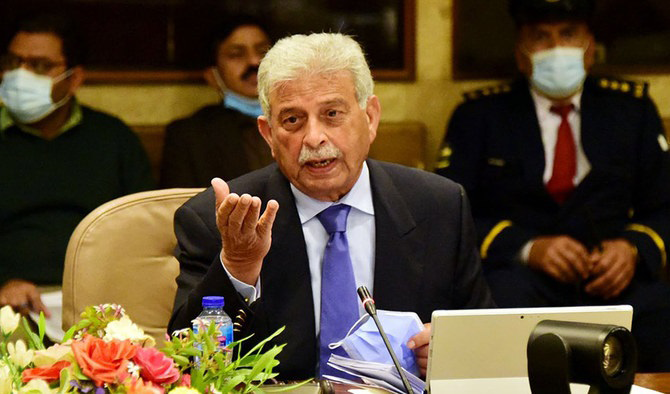Minister for Industries and Production Rana Tanveer Hussain on Thursday presented the National Industrial Policy at UNIDO forum with an objective to create an enabling environment for local industry growth and attract foreign investment.
Addressing the United Nations Industrial Development Organization (UNIDO) Multilateral Industrial Policy Forum in Riyadh the minister said the policy would be finalized by October 2024, according to press release issued by the Ministry of Industries.
The policy focuses on green energy initiatives, women empowerment, and regional cooperation, aligning with Pakistan’s Vision 2025 and Sustainable Development Goals.
He said, a comprehensive and integrated approach is being adopted to effectively align the National Industrial Policies with national and regional Sustainable Development Goals (SDGs) for maximum impact.
The strategies used include prioritizing high-impact sectors, regional collaboration, inclusive stakeholder engagement, incentivizing sustainable practices, and, strengthening governance and policy coherence.
The policy will focus on various sectors such as steel, cement, mining, petrochemicals & chemicals, fertilizer, heavy mechanical, non-ferrous metals, plastics and composites, fisheries, transport and logistics.
It also cover value-added/GVG sectors such as auto parts, tractors, parts & accessories of office machines, travel accessories furniture, footwear, synthetic & non-traditional textiles and garments, food processing, surgical and medical devices, electronics, and pharmaceuticals.
Rana Tanveer said that the formulation of the green energy initiative also a prominent aspect of the policy.
The minister highlighted that currently, the transport sector accounts for over 75 percent of total commercial oil consumption. Pakistan is currently using over 65 percent of its foreign exchange reserves on fuel imports.
To mitigate this situation, de-carbonization in the transport sector and adoption of electric vehicles (EVs) such as electric two and three-wheelers, decentralized power storage, batteries, solar cells, charging stations, etc. are being adopted in Pakistan.
Currently, forty-eight companies have been issued manufacturing licenses by the Ministry of Industries and Production enabling them to produce two/three-wheeler EVs in Pakistan.
The solar energy sector is growing fast due to market demand and there are about 9 solar panel assemblers operating in the country. Pakistan is committed to renewable energy; with solar PV projected to reach 30% of its energy mix by 2030.
This transition to clean energy would also help reduce GHG and air pollutant emissions, dependency on imported fossil fuels, and could also create jobs in the automotive industry in the medium term.
The Policy would also encompass developing financial incentives, such as tax breaks, subsidies, or grants, to encourage industries to adopt sustainable practices, contributing to goals like reducing carbon emissions or improving resource efficiency.
This policy is being designed to uplift key industrial sectors in a focused and sustainable manner, ensuring that industries are better equipped to meet both current and future challenges.
The industrial policy also envisages measures for women’s empowerment which include ensuring implementation of the “ Banking on Equality” Policy of the State Bank of Pakistan (SBP), simplification of taxation procedures & reduced tax rates for women-owned SMEs and develop a one-window virtual facility for women entrepreneurs for enhanced access to information. The measures also include providing women-friendly work environment through establishing women business centers, display facilities emporiums, developing specialized women business facilitation programs in areas such as starting and managing a business, accounting & book-keeping, fulfilling tax liabilities, marketing & digitization, and developing linkages with Domestic & international markets through aggregation models.—APP










